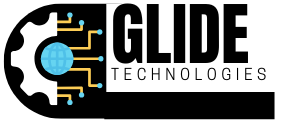Table of Contents
ToggleIn a world where software rules and subscriptions reign supreme, the biggest SaaS companies are like the superheroes of the tech universe. They swoop in to save businesses from the clutches of outdated systems and cumbersome software. With a click of a button, they transform how companies operate, communicate, and thrive. Who knew that a little cloud could hold so much power?
These giants aren’t just about fancy features and sleek interfaces; they’re the backbone of modern business. From streamlining workflows to boosting productivity, they’ve become indispensable allies for organizations of all sizes. So, whether you’re a small startup or a Fortune 500 titan, understanding the biggest players in the SaaS game could be the key to unlocking your company’s potential. Buckle up as we dive into the world of SaaS, where innovation meets convenience and hilarity often ensues.
Overview of SaaS Industry
SaaS companies dominate the software landscape by providing scalable solutions for various business needs. They eliminate the burden of on-premise installations, allowing users to access applications via the cloud. With this transition, organizations enhance flexibility and reduce operational costs.
Growth rates in the SaaS sector reflect its importance. The global SaaS market size reached approximately $145 billion in 2021 and is expected to grow to $195 billion by 2024. This growth underscores the increasing reliance on cloud-based services. Businesses of all sizes leverage SaaS for various functions such as customer relationship management, project management, and human resources.
Leading players in the market, including Salesforce, Microsoft, and Adobe, set standards for innovation and customer service. These companies continuously expand their product offerings to meet evolving consumer demands.
Security remains a critical concern for SaaS users. Providers invest heavily in cybersecurity measures, ensuring data protection while maintaining compliance with regulations like GDPR and HIPAA.
Interoperability offers significant advantages. Many organizations utilize multiple SaaS applications that need to communicate seamlessly. API integrations allow different solutions to work together, enhancing overall efficiency.
Market trends indicate a shift towards vertical solutions tailored for specific industries. Companies are increasingly adopting niche SaaS solutions, offering customized functionalities that cater to specialized operational needs.
The SaaS industry represents a transformative force in business technology. Its continuous innovation and adaptability equip organizations to thrive in a rapidly changing digital environment.
Top 5 Biggest SaaS Companies
The biggest SaaS companies shape the industry’s landscape with their innovative solutions and extensive market reach. Identifying these companies offers insight into effective business tools.
Company Profiles
- Salesforce: Salesforce leads as a customer relationship management titan, serving millions of users globally. Its platform adapts easily to various business sizes and needs.
- Microsoft: Microsoft’s Azure and Office 365 revolutionize workplace productivity. Known for reliability, the company integrates advanced security features across its offerings.
- Adobe: Adobe stands out for its creative software suite, catering to both individuals and enterprises. The company continuously expands its cloud solutions, focusing on design and marketing.
- SAP: SAP specializes in enterprise resource planning software. It streamlines operations for large organizations, promoting coordination across departments.
- Oracle: Oracle dominates in database management and cloud solutions. Its comprehensive tools assist large corporations in managing data effectively while ensuring compliance.
Key Offerings
Salesforce excels in customer relationship management solutions, facilitating seamless interactions between businesses and clients. Microsoft emphasizes productivity with tools like Azure for cloud applications and Office 365 for document management.
Adobe delivers creative solutions through the Creative Cloud, specializing in design, video, and marketing services. SAP’s suite focuses on enterprise management, offering tools to optimize supply chain and financial operations.
Oracle provides robust database solutions that support analytics and data management, enabling businesses to leverage information for strategic decisions. Each company’s offerings address specific market needs, showcasing the diverse capabilities within the SaaS sector.
Factors Contributing to Success
Leading SaaS companies thrive due to several critical factors that enhance their competitive edge in the market.
Innovation and Technology
Continuous innovation stays at the forefront of success. Companies like Salesforce and Microsoft continually enhance their platforms with cutting-edge features and capabilities. New technologies, such as artificial intelligence and machine learning, enhance data analysis and automate processes. Emphasizing scalability and flexibility, these solutions adapt to diverse business needs. Efficient technology integration facilitates seamless communication across applications, streamlining operations and improving productivity. Staying ahead of trends ensures relevance and helps address evolving customer expectations.
Customer-Centric Approach
A strong customer-centric approach fuels growth for top SaaS companies. Understanding client needs drives product development, ensuring solutions meet specific challenges. Engaging with customers through surveys and feedback channels promotes a sense of partnership. Companies like Adobe prioritize user experience, delivering intuitive design and functionality. This focus on customer satisfaction leads to higher retention rates and loyalty. Providing comprehensive support and training enhances user adoption, allowing clients to maximize the benefits of their solutions. Cultivating relationships ultimately builds brand trust and strengthens market position.
Future Trends in SaaS
Emerging trends are reshaping the Software as a Service (SaaS) landscape, driving innovations that enhance business operations. Companies are increasingly adopting artificial intelligence to automate customer service, streamline workflows, and improve decision-making. Enhanced machine learning capabilities facilitate sophisticated data analysis, enabling businesses to extract valuable insights from vast amounts of information.
Vertical SaaS solutions tailored for niche markets are gaining traction. These specialized offerings address unique operational needs within specific industries, reflecting the growing demand for more personalized software solutions. For instance, healthcare providers benefit from tailored SaaS platforms designed to manage patient data compliantly while optimizing workflows.
Cybersecurity remains a top priority among SaaS companies. With data breaches on the rise, firms invest significantly in robust security measures to protect sensitive information and ensure compliance with regulations including GDPR and HIPAA. Strengthening encryption and proactive threat monitoring are essential strategies for safeguarding client data.
Interoperability continues to be crucial as organizations often deploy multiple SaaS applications. Seamless integration among these tools through advanced API connections enhances functionality and user experience. Organizations can leverage various applications efficiently, increasing overall productivity.
Sustainability is emerging as a significant concern in the SaaS ecosystem. Companies are adopting greener practices, focusing on energy-efficient data centers and minimizing the carbon footprint of cloud services. The commitment to sustainability strengthens brand loyalty and appeals to environmentally conscious consumers.
Overall, the SaaS industry evolves rapidly, with advancements in technology and shifting market demands driving these changes. Organizations are positioned to leverage innovative solutions that not only improve operational efficiency but also enhance overall performance in a competitive landscape.
The impact of leading SaaS companies on modern business cannot be overstated. Their innovative solutions not only streamline operations but also empower organizations to adapt to an ever-evolving digital landscape. As the market continues to grow and transform, these companies will play a crucial role in shaping the future of technology and business.
With a focus on continuous improvement and customer satisfaction, the biggest SaaS providers are setting benchmarks for success. Their commitment to security, interoperability, and sustainability ensures that businesses can thrive while addressing critical operational challenges. Embracing these advancements is essential for any organization aiming to stay competitive in today’s fast-paced environment.



